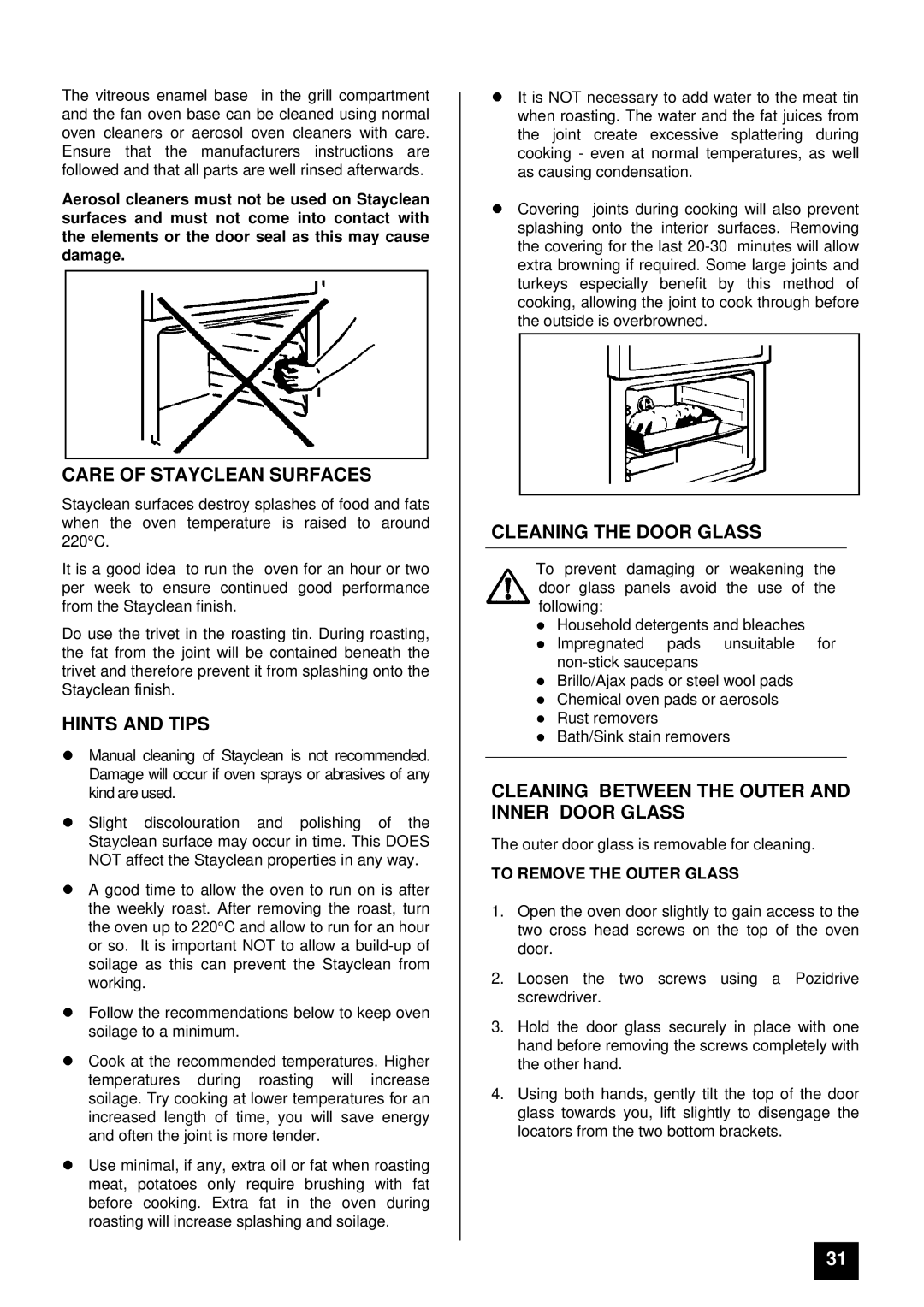ZCE 7600, ZCE 7800 specifications
The Zanussi ZCE 7800 and ZCE 7600 are modern electric cookers designed to meet the diverse needs of home cooks. Both models offer a combination of reliable performance, user-friendly features, and innovative technologies, making them ideal for any kitchen setting.Starting with the Zanussi ZCE 7800, this model features a spacious oven with a generous capacity, allowing users to prepare multiple dishes simultaneously. It is equipped with a multifunctional cooking system that enables various cooking methods, including conventional baking, grilling, and fan-assisted cooking. The fan-assisted feature ensures even heat distribution, resulting in perfectly cooked meals every time. The ZCE 7800 also comes with a powerful hob that offers rapid heat-up times and precise temperature control, providing flexibility for a variety of cooking styles.
The ZCE 7800 is designed with user convenience in mind. Its intuitive control panel features easy-to-read dials and buttons that allow for quick adjustments. Additionally, the model includes a programmable timer that helps users coordinate cooking times effectively, ensuring that meals are cooked to perfection. The oven's interior is lined with easy-to-clean enamel, making maintenance a breeze.
On the other hand, the Zanussi ZCE 7600 shares many similarities with its counterpart but is designed with slightly different specifications. It also features a roomy oven with a range of cooking options, including both traditional and fan-assisted modes. The ZCE 7600 prioritizes energy efficiency, helping users save on energy costs without compromising performance. This model includes a ceramic hob that provides smooth cooking surfaces, which are not only easy to clean but also ensure consistent heating across pots and pans.
Both models include safety features such as residual heat indicators, ensuring that users remain aware of hot surfaces after cooking. Additionally, the child lock function provides peace of mind in households with young children, preventing accidental operation.
In summary, the Zanussi ZCE 7800 and ZCE 7600 are reliable electric cookers that blend functionality and safety with modern design. Their advanced features and technology cater to both amateur and experienced cooks alike, making meal preparation more efficient and enjoyable. Each model reflects Zanussi's commitment to quality and innovation, promising to enhance the cooking experience in any home.

